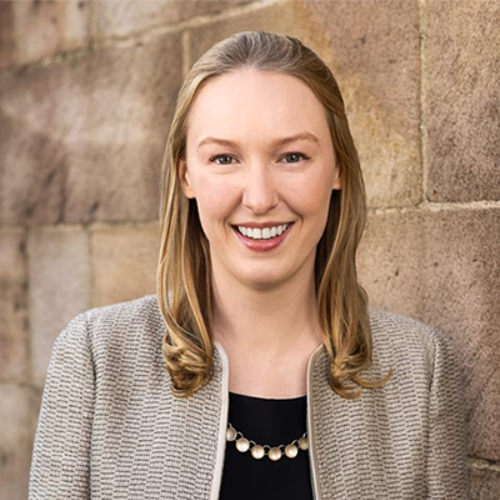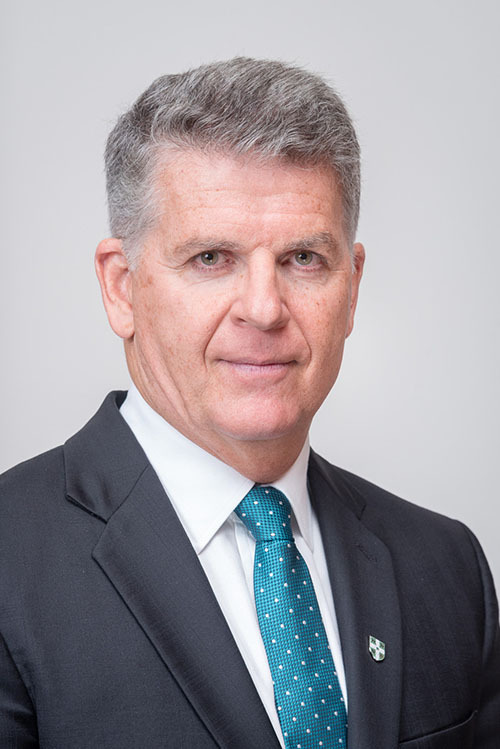- Winter 2024
- Seen and not heard: Improving access to speaking roles for junior counsel, and countering unconscious bias
Seen and not heard: Improving access to speaking roles for junior counsel, and countering unconscious bias


In conversation with Justice Anthony McGrath and Kate Morgan SC
Bar News (BN): Following on from the CPD on this topic hosted by the Diversity and Equality Committee in February, we’re talking today about speaking roles for junior counsel and how unconscious bias may be an obstacle for junior barristers in getting speaking roles. Justice McGrath, Kate Morgan SC, thank you for your invaluable contributions to this topic.
What is unconscious bias in the context of legal decision-making?
Justice McGrath [JM]: In their article in the Modern Law Review in April 2019 titled ‘Just Cognition: Scientific Research on Bias and Some Implications for Legal Procedure and Decision-Making’, Gary Edmond and Kristy Martire define unconscious biases as those ‘biases [that] operate automatically and unconsciously … quick[ly] and effortlessly’ and that are, consequently, ‘ubiquitous and insidious’. Such biases ‘unconsciously shap[e] our perceptions, problem-solving and decision-making’, and the authors give as examples the issues of racism, sexism, colourism, homophobia, ageism and religious intolerance – prejudices that attach to certain ascertainable characteristics or attributes.
Unconscious bias is, of course, to be distinguished from conscious bias, which is the kind of bias or prejudice that is within one’s awareness and control and can therefore be more readily managed and mitigated.
Bias, whether conscious or unconscious, needs to be of concern to all decision-makers because it threatens the legitimacy of the decision-making process and the outcomes of that process. Among the matrix of factors that influence judicial decision-making and perceptions about the performance of advocates that come before them, and the cases those advocates present are a set of unconscious biases, which can include the style of advocacy or ‘manner’ (such as vocal register, tone, speaking pace and use of body language), how advocates present visually (whether they are polished, confident, harried or nervous), [and] the way in which arguments are framed and their substance.
Kate Morgan SC [KM]: We are all susceptible to unconscious bias. In the courtroom, these biases can be held by the judicial officer, the solicitors, the client and us. I think it is important to acknowledge and be mindful of those unconscious biases as a first step in countering them. By doing that, we’re then better equipped to foster the skill set of junior counsel by promoting speaking roles.
BN: What are some of the biases that junior counsel face when seeking to obtain oral advocacy experience?
JM: One barrier is unconscious bias held by all those in a courtroom or with a stake in the matter, including the junior barristers themselves, senior counsel, instructing solicitors, the client and the judge. Biases can influence whether the junior barrister takes on a speaking role at all; whether and the extent to which confidence is reposed in the junior barrister (and, in turn, how the junior barrister themselves feels about their own capabilities); how well prepared the junior barrister may be to assume responsibility for a certain aspect of the matter, including how well they are across the material (eg a particular issue, point to be put, or witness to be questioned); how well the junior barrister is received (by their colleagues and by the presiding judge); and how the junior barrister performs on the day.
These biases commonly arise from prejudicial assumptions about junior barristers (whether true or not). It is true that junior barristers have a relative lack of experience and/or exposure – junior barristers are newer to the craft of courtroom advocacy and do not have the same level of rapport with judges and reputation within the profession. It is not a huge jump, then, to operate with a biased assumption that junior barristers might be more prone to making mistakes or mishandling a case, bungling the questioning of a witness, or failing to provide a cogent reply to a question from the Bench, and so on.
BN: Are there other practical barriers to oral advocacy opportunities that junior barristers face?
JM: The general trend towards written submissions, as well as variable oral advocacy opportunities across different practice areas or types of claims, provide real barriers. In some areas of practice, it is more routine for juniors to have time on their feet in substantive hearings. In other areas, oral advocacy opportunities for junior counsel might be more commonly limited to interlocutory and procedural hearings, if at all.
BN: Have you observed recognition within the profession of these practical obstacles? Are efforts being made to address them?
JM: There has been an emerging trend of courts and tribunals issuing notices to the profession endorsing expanded oral advocacy opportunities for junior barristers. In November 2023, the UK Judicial Office released a statement calling for increased opportunities to advance oral argument in courts and tribunals for ‘junior counsel in general, and female junior counsel in particular’ to ensure their continuing development as advocates. The UK Judicial Office even went so far as to say that ‘in all suitable cases involving leading and junior counsel, particularly where junior counsel has been heavily involved in the drafting of the written argument, judges will be expected to ask whether a speaking role for junior counsel has been considered’.[1]
This is very significant — suggesting that there is something akin to a positive obligation upon judicial officers to ask the question and promote the practice. It has the very vocal support of the UK Bar.
In Australia, similar initiatives have been taken by the Chief Justice of the Federal Court of Australia in July 2019, by a Notice to the Profession from the Supreme Court of Victoria in 2021, and by the Fair Work Commission in November 2022.
KM: These notices to the profession send an excellent message from the court to the profession that the court wants junior counsel to take on speaking roles. It is encouraging that notices of this nature have been issued in several jurisdictions within Australia.
Change also needs to come from within the Bar. Senior counsel, as leaders of the Bar, have a choice to provide opportunities to their juniors. I encourage my peers to make that choice. Diversity of speakers in court is beneficial for the profession – by increasing diversity among those speaking in court, we better reflect our community’s diversity. It is also beneficial for clients by increasing the diversity of perspectives and decision-makers in their legal representation, which we know from other areas of decision-making leads to better outcomes.
BN: How can we, as a professional group, shift the needle on unconscious bias and foster the advocacy skills of the junior Bar?
KM: From the perspective of a barrister who now has juniors, and who not so long ago was given many opportunities by those leading me, these are my suggestions.
First of all, we can be mindful of our own unconscious biases. Then, we can make a choice. The choice may come with the Bench encouraging the active participation of junior counsel, as we have just discussed. The choice may come from the leaders providing the opportunities to those that they lead. Finally, there is the choice made by junior barristers to seize those opportunities when they arise.
BN: What are some strategies that senior members of the Bar can adopt to introduce speaking opportunities for junior counsel?
KM: First, consider whether ‘this is a good matter in which I can use my position to foster diversity at the Bar and to advance the advocacy skills of my junior’. This involves considering the junior’s experience and ability, and the nature of the proceeding, including its complexity and length. Is there a part of the hearing that is easily severable? For example, there may be a ground of appeal or, in a trial, a witness or group of witnesses that raise distinct issues. I try to use this as not only an opportunity for my junior, but also a way of assisting my preparation by removing my need to focus on a particular aspect of the case. It’s important not to give a junior a less meritorious argument; this is not only unfair to the junior but may also send the wrong message to the court, your opposition and the client.
Second, solicitors and clients may need convincing. I suggest that you don’t present it as a ‘done deal’ – it really should be a joint decision. I find that this is more palatable if presented as a ‘win–win’, by focusing on the junior’s advocacy skills and also the ability to free up the leader to focus on a particular part of the case. This is where notices to the profession from the courts can also assist, as they allow a leader to tell a client that the courts actively encourage – and, in some cases, expect – junior counsel to take on speaking roles. Another reason that can be deployed is that it can assist in the presentation of a case to have a fresh voice and a change in pace, particularly in a long or complex argument or hearing.
Third, consider logistical arrangements. When a junior is cross-examining a witness, they may not want their silk sitting next to them. At times, I have moved to the back of the courtroom. This sends a message to the court that I trust my junior and they are in charge. I have also left a junior team to run parts of a cross-claim or a fight about expert evidence so that I can prepare for the next round of witnesses in chambers.
JM: In my view, it is incumbent upon senior barristers to be more proactive about identifying and presenting opportunities for junior barristers to, for example, cross-examine certain witnesses, conduct evidence-in-chief or cover discrete topics in opening or closing submissions.
Senior barristers should see it as part of their role to bring the junior barrister to a higher standard and reach the point at which they have confidence in the junior barrister’s abilities and can reassure the client of that confidence in an effort to dispel any doubts the client may have. Senior barristers should aim to develop a culture of making space for juniors and sharing the advocacy load through dividing and delegating. When it comes to clients, senior counsel have a role to play in developing an impression of the junior barrister’s competence to raise confidence in the junior barrister.
There are many advantages to this approach. Allowing junior barristers to take the lead will increase efficiency and reduce the inefficiencies involved in duplication of work. This can be a basis for persuading clients of the merits of junior counsel taking on more speaking roles. Alternating between senior and junior counsel – for example, when questioning witnesses – also generates an impression that the team is well prepared and polished and fully functioning as a team. Impressions in the courtroom matter.
Areas that are particularly apt to be delegated to junior counsel include replies, questioning certain witnesses or witnesses on discrete topics, and making closing submissions or responding to questions from the Bench on particular issues. The best approach is likely to be the allocation of certain issues by carving up the case between the senior and junior barristers in a way that makes sense and allows for some continuity.
KM: I like that phrase, ‘making space’ – it captures perfectly the role of senior counsel and how we can participate in this process both intentionally and thoughtfully.
BN: Do you have a favourite memory of being given a speaking opportunity?
KM: A long time ago, Stephen Gageler SC encouraged me to do the reply in a Court of Appeal matter; part of the appeal was factually intense, so the perfect opportunity for a fact-obsessed junior like me. It was also an opportunity to complain to the Court of Appeal about the poor quality of juniors at the Sydney Bar when Gageler handed me the wrong blue book.
JM: I remember being junior to Richard White SC [now Justice White of the Court of Appeal]. He gave me two witnesses to cross-examine. I thought I was doing so well with the first one until I looked down at Richard seated next to me and realised that he did not share my view. All I had done was to get the witness to repeat his evidence in his affidavit. I was wasting time and needed to get to the point – quickly!
BN: What advice would you give to junior counsel seeking to advance their oral advocacy opportunities?
JM: Junior barristers must also advocate for greater speaking roles for themselves. They need to initiate a conversation in which they appropriately and politely remind the silks and leading juniors with whom they are working to consider them for advocacy roles. They should think about the obtaining of greater speaking opportunities as a learning and professional development opportunity, especially if they aspire to achieve or are working towards career progression to senior counsel status.
If possible, and if a junior barrister has the time, I would encourage them to engage in pro bono work in order to get time on their feet. For example, the New South Wales Duty Barrister Scheme (an initiative of the NSW Bar Association) operates in the Local and District courts and provides members of the Bar with an opportunity to represent in court individuals who cannot afford a lawyer but do not qualify for Legal Aid.
KM: Seize any speaking opportunities when they are given. But it involves all of us making the choice – choosing to be proactive, to think strategically, and to think hopefully about the profession we want to be.
ENDNOTES
[1] <https://www.judiciary.uk/encouraging-greater-participation-of-junior-counsel-in-courts-and-tribunals-hearings/>.


